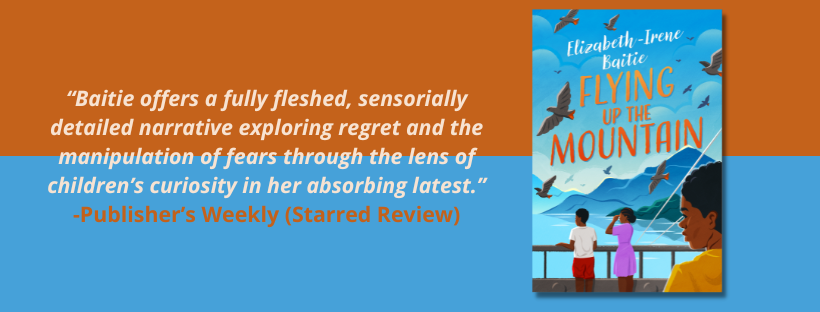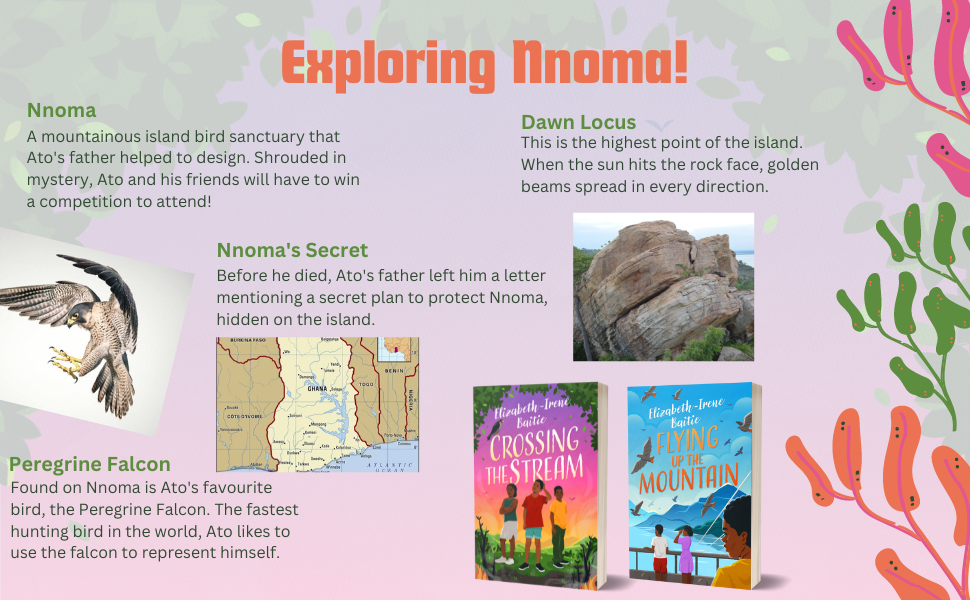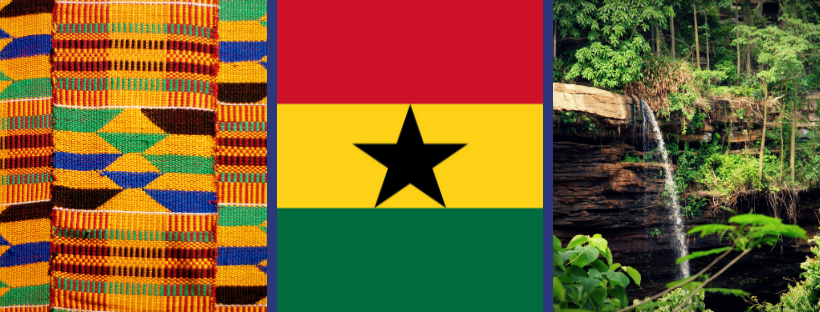What inspired you to write Flying Up The Mountain, and how did you come up with the idea of blending themes of adventure, conservation, and family legacy?
I believe the call to adventure surges in the blood of many young people, and given a chance, they will chase a dream. Children in particular are spurred to great heights when the right words are spoken to them. Having had a grandmother who regularly spoke words of encouragement to me, I am a keen believer in encouraging others, and our own selves. In addition my grandmother was a conservationist, with an impressive knowledge of medicinal plants, and a deep appreciation of man’s link to the earth. I blended all these into Flying up the Mountain, in which my main character, 12 year old Ato, is following a dream. With the backing of his grandmother, Ato picked up the baton where his long dead father had left off, overcome his fears and foes, and took on the enemy forces that threatened the bird island paradise of Nnoma.

The setting of Nnoma, the bird sanctuary, is vividly portrayed in the book. Did you draw inspiration from real-life locations?
Yes indeed! The idea for Nnoma came from the heavily forested Akuapem-Togo mountain ranges which span the Eastern and Volta regions of Ghana. In addition, the Volta region is also the location of one of the world’s largest manmade lakes, bearing the same name as the region. Dotted within the Volta Lake are a number of thickly wooded islands. These places of natural beauty are all rich in wildlife and formed the basis of the fictional bird paradise of Nnoma.
The themes of environmental conservation and stewardship are prominent throughout the narrative. What message did you intend to convey about the importance of preserving natural habitats, especially for younger readers.
On the island of Nnoma, Ato and his friends are immersed in a natural wonderland, with minute-by-minute reminders of how closely humans are bound to nature; man, plants and animals are all tightly connected within the web of earth, sky and water. I’m hoping younger readers will appreciate that when habitats are lost, minerals, plants, animals and peoples are also lost. And with each species that is lost, a hole is created in our web that leaves us all poorer, weaker and sicker. We all matter to each other – birds and butterflies, man and mountains, sea and sky.
Also, children who are immersed in nature at a young age are more likely to grow up valuing it. I hope this story encourages readers and parents to spend time enjoying nature and green spaces, setting aside electronic devices for a few hours or days to find joy and wonder in the natural world around us.

What do you hope readers, especially young ones, will take away from Flying Up The Mountain, and how do you envision it sparking conversations about conservation and activism.
Ato and his friends, all 12-year-olds, rallied together to protect Nnoma. Their action reflects those of many powerful young voices around the world—from Europe to Africa, the Americas to Asia—who are making a significant difference in decisions that impact the environment. They demonstrate that we can’t always wait for people in power to do what’s right; many people at the top are either unwilling to, or unable to control the destruction of our environments. Sometimes, we have to take the initiative ourselves. The power of one is profound. I hope readers, especially young ones, will find the heroes and heroines within themselves and realize that their voice makes a difference. Sometimes, you may feel helpless or afraid but banding together with friends, and supportive adults can amplify their impact. I hope Ato’s courage can inspire readers to navigate difficult spaces and take action where it is called for, even in the smallest nook of our world. We really do have power to protect the earth, one person at a time.
What is it about Ghana you would like readers to take from Flying Up The Mountain?
Ghana is teeming with wildlife and our lands are rich in minerals. This makes our environment a prime target for exploitation. I would like people to be conscious of the fact that, like everywhere else, preserving the natural beauty and resources of our country is a huge task. We are battling those who, in trying to take economic advantage of our natural resources, will ruin the environment. For example, Ghanaians are increasingly troubled by the pollution of rivers and water bodies as a result of small-scale mining. Rivers which were previously clear, now run red with silt and poisonous chemicals. The natural habitats of animals and plants are destroyed for economic gain. Nothing is spared—forests, farmlands, and beautiful rural landscapes are all at risk, and regulation does not seem to be unenforced.
We all need the courage of Ato and his friends if we want to keep Ghana – and the world – beautiful. Many visitors to Ghana come to enjoy the food, and explore our beautiful tropical country, but parts of it are in grave danger. So, come visit… and then pitch your voices in to the call to preserve our forests, waters, and the people and animals that live in them.

Flying Up the Mountain is OUT August 2024. Pre-order here.
